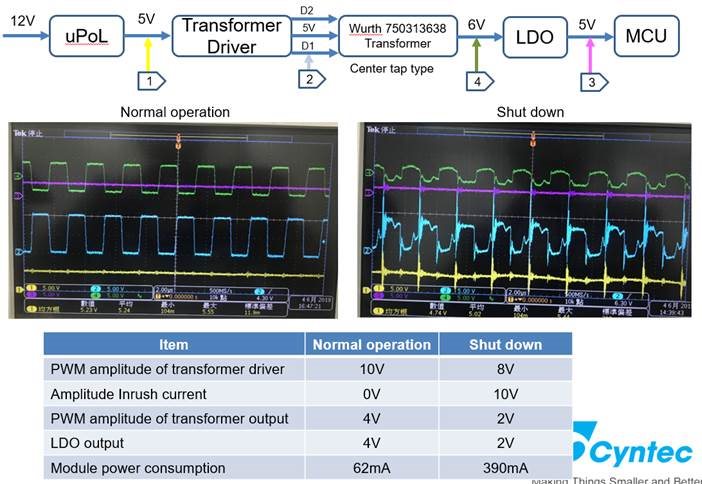Other Parts Discussed in Thread: SN6501
Hello team,
My customer put SN6505B-Q1 at 85°C chamber then the output voltage became abnormal. Please find below waveforms.
SN6505B-Q1 is put at current monitoring board and closed to shunt resistor. When the board was put at chamber and large current flowed through shunt resistor, the shunt resistor's temp. is 140°C, transformer is 125°C, SN6505 is 110°C.
The measured point of scope's waveforms were as the upper diagram's, the driving waveform(CH2, green) became distortion at high temperature environment. Could them help to comment it and what experiment we can to dig out the root cause.
Thanks very much.
Vincent Chen



